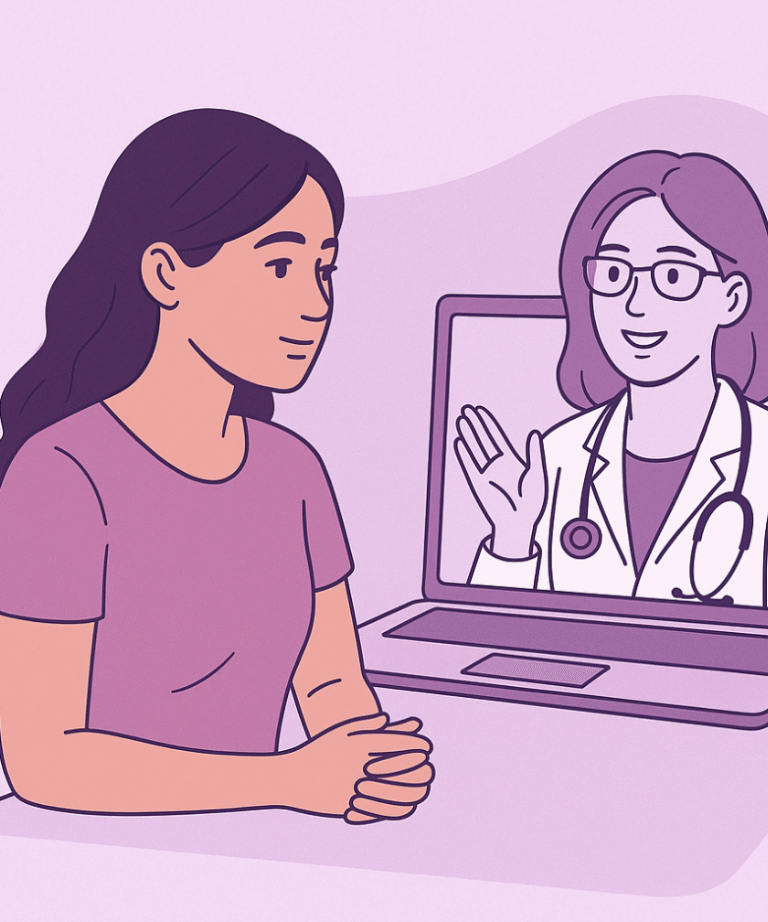Why Every Woman with PCOS Should Talk to a Gynaecologist —
Not Google

Let’s be honest — the moment your period goes missing or acne flares up, your first stop is usually… Google.
“Do I have PCOS?”
“Is weight gain normal?”
“Can I cure PCOS naturally?”
But here’s the truth: every woman’s body — and every case of PCOS — is different.
And while Google gives you answers, it can’t give you your answer.
So, What Exactly Is PCOS?
Polycystic Ovary Syndrome (PCOS) is a hormonal disorder where the ovaries produce higher-than-normal amounts of male hormones (androgens).
This disrupts ovulation — the process of releasing an egg every month — leading to irregular periods, acne, hair growth on the face, and weight gain.
In simple terms, your ovaries start making tiny fluid-filled follicles (often called “cysts”) but don’t release eggs regularly.
Over time, this hormonal imbalance can affect your metabolism, fertility, skin, and even mood.
PCOS is not your fault — it’s a mix of genetics, lifestyle, and stress-related hormonal shifts.
Why PCOS Should Never Be Ignored
Many women think, “It’s just irregular periods, it’ll settle.”
But untreated PCOS can silently lead to serious long-term problems:
Infertility: Irregular ovulation can make it harder to conceive.
Type 2 Diabetes: Insulin resistance is common in PCOS and can progress to diabetes if unmanaged.
High Blood Pressure and Heart Disease: Hormonal imbalance and weight gain increase cardiovascular risk.
Endometrial (uterine) Cancer: Long gaps between periods mean the uterine lining keeps thickening — a hidden danger.
Anxiety, Depression, and Low Self-Esteem: Hormonal swings and physical symptoms can deeply affect mental health.
The earlier PCOS is diagnosed, the easier it is to manage — and the better your long-term health outcomes.
Why Talking to a Gynaecologist Changes Everything
A gynaecologist doesn’t just confirm PCOS — they help you understand your type.
There are different PCOS patterns — insulin-resistant, inflammatory, adrenal, or post-pill — and each needs a different approach.
Your doctor will:
Check your period history, lifestyle, and symptoms
Run blood tests for hormones and sugar metabolism
Do an ultrasound if needed
Create a personalized plan that includes diet, exercise, and medication only when necessary
That’s something no Google search can do for you.
The HerDoc Way
At HerDoc, we believe awareness is power — but personalized care is healing.
Our experienced gynaecologists take time to explain your reports, decode your hormones, and guide you step-by-step toward balance.
If you’ve been searching “PCOS home remedies” lately, maybe it’s time to stop scrolling and start healing.
💜 Consult a HerDoc Gynaecologist Online Today — Your Hormones Deserve Expert Care.
